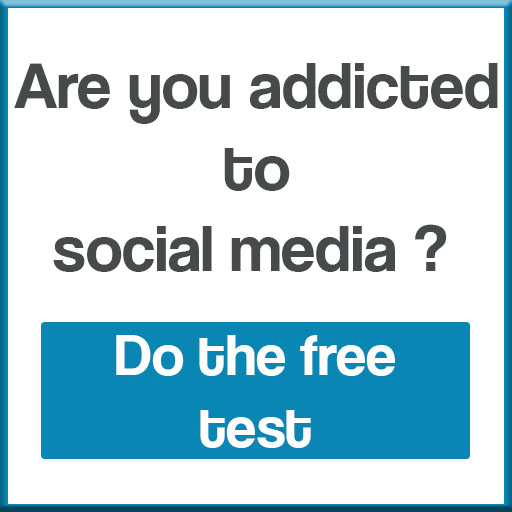Social media can be a fun, engaging, and thrilling experience. To post pictures of yourself or to post your thoughts for the world to critique and give feedback on can be such a rush.
One reason for the addictiveness of social media is that it’s a cheap and easy source of dopamine. Dopamine is colloquially known as the “feel-good” hormone, it regulates the feelings of desire and pleasure in people.
Learn how to detox
Are you looking for help to detox from a Social Media “Addiction”?
Discover the exclusive & efficient method by Maegan and François from ToBeOptimized.com!
Detox from social media in just 21 days, with only 10-15 minutes of practice per day.

To understand the addictive nature of social media, let’s take a look at Facebook specifically. When people think of the term “social media” Facebook instantly comes to mind, one could even say that Facebook is where the term “social media” arose from.
As is the case with all other forms of social media platforms, Facebook plays on the brain’s need for rewards and our very human need for acceptance in the form of likes and comments. Put simply, yet another form of instant gratification.
Whenever a user shares a status or picture on Facebook and receives positive feedback in the form of a comment or a “like”, that triggers the reward center of our brain.
Facebook is also a source of news for most people, so it taps into that need to stay current and plays on the fear of missing out, which attributes to why Facebook (and social media as a whole) can be addictive to people.
For anyone who’s received a “like” on Facebook, and experienced the resulting high therein, knows this feeling. Even the like button itself has become a cultural phenomenon that speaks to the insane popularity of the platform and the many people who suffer from some form of addiction.
Posting your pictures and receiving positive validation can be an intoxicating experience that makes users come back to social media platforms again and again.
As mentioned earlier, being on sites like Facebook increases the secretion of the feel-good hormone, dopamine. This rush of dopamine combined with the ease of access to social media platforms results in a powerful addiction.
Facebook is also a source of news for most people, which adds to the ease of access and helps contribute to the social media addiction phenomenon. Moreover, this plays into the need to be connected and the fear of missing out. Since there are people out there who use Facebook as a source of news, this makes it easier for them to check out the other features while they’re there. Being inundated by so many potential “feel-good” stimuli and providing people with a source of news fuels Facebook’s appeal and makes it addictive to people.
Facebook isn’t the only social media platform out there, but it is the most popular, and taking a closer look at Facebook can help us examine just why and how social media has become so addictive to people.
At some point, one has to try to break the cycle and/or seek help to stop the addiction and return to an otherwise normal healthy life without social media entirely, or with minimal to normal social media exposure. This may require some careful planning and steps or just requires one to quit cold turkey.
Like it or not, social media is a side effect of humanity’s growing reliance on technology and in one shape or another, it’s not going anywhere anytime soon. Aside from posting pictures and projecting the false narrative of a perfect life, or the needless comparison to one another, people use social media for a lot of legitimately good reasons. One reason is to connect to other people far and wide, to make friendships despite the distance between them in an instant. This is a wonderful capability we have at our fingertips and we should not lose sight of this fact. Put simply, social media has its benefits, but if we’re not careful, it can be harmful if we indulge too much without any moderation.
Just like technology and the internet itself, it’s important to recognize the role that social media plays in our modern society and to use it as a force of good instead of becoming so reliant on it that it debilitates us from doing anything meaningful in life.
People are addicted to social media for its ease of use, the instant rewards it provides, the interactivity and it fulfills the very human need to stay connected and stay in the know to the newest trends, memes, and content out there on the web. It plays on the fear of missing out, our need to compare ourselves to one another, all the while being visually appealing, easy to use, and intensely rewarding.
Again, social media is a wonderful tool and phenomenon of the 21st century, but if we are not careful in how we use it, it can prove harmful to our health both mentally and physically.


